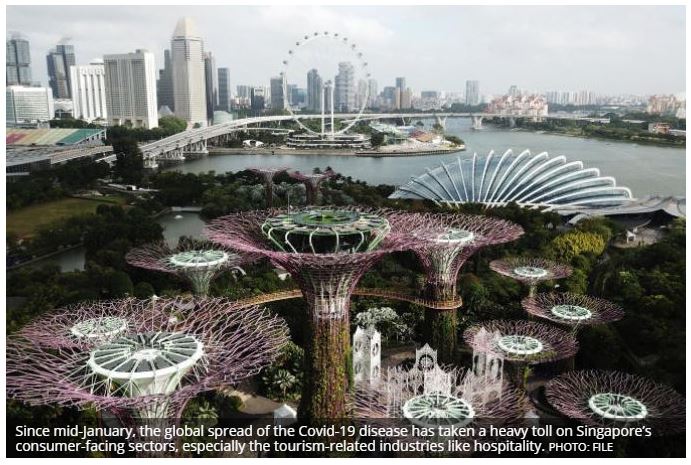Singapore core inflation misses forecasts in January at 0.3%
SINGAPORE inflation missed industry forecasts in January, hampered by a sharper fall in the cost of retail and other goods, according to consumer price index (CPI) data out on Monday.
Core inflation, a central bank metric that excludes private transport and accommodation costs, was 0.3 per cent – slowing from the 0.6 per cent clocked in December 2019, and well below the 0.9 per cent expected by private-sector watchers in a Bloomberg poll.
Meanwhile, headline or all-items inflation came in at 0.8 per cent in January, unchanged from the month before, though a smidgen below the private forecast of 0.9 per cent.
“Part of the fall in core inflation also reflected the impact of the rebasing of the CPI to 2019 as the base year,” the Monetary Authority of Singapore (MAS) and Ministry of Trade and Industry (MTI) added, with changes also made to the weights and samples of items used in the index.
Since mid-January, the global spread of the Covid-19 disease has taken a heavy toll on Singapore’s consumer-facing sectors, especially the tourism-related industries like hospitality.
Private-sector economists are now guiding for the MAS to ease monetary policy in April, as the official full-year growth forecast was lowered last week to include the possibility of a recession.
The MAS and MTI said jointly that they will keep an eye on price trends, including the impact of the rebasing of the CPI, even as “economic uncertainty, including the effects of the Covid-19 outbreak, will likely discourage firms from passing on any cost increases to consumers”.
As for January, “higher private transport inflation and an increase in accommodation cost was offset by lower inflation in the remaining core CPI basket”, the MAS and MTI said.
Still, they said that “inflationary pressures are expected to remain subdued in the near term” and noted that domestic labour market conditions have continued to soften.
The first month of the year saw a steeper rise in car prices and a rebound in housing rentals, compared with end-2019, which pushed up headline inflation.
But the prices of medical products, clothes and shoes posted larger declines, taking the year-on-year decrease in the cost of goods to 1.4 per cent, widening from 0.9 per cent in December.
Services inflation also eased to 0.5 per cent, from 1.2 per cent in the month prior, as higher pre‐school subsidies lowered the cost of education, alongside a fall in healthcare costs and a smaller increase in telecommunication service fees.
The MTI and MAS official forecasts for both core and headline inflation in 2020 have been kept unchanged, in a range of 0.5 per cent to 1.5 per cent.
Source: https://www.businesstimes.com.sg/government-economy/singapore-core-inflation-misses-forecasts-in-january-at-03


 English
English




